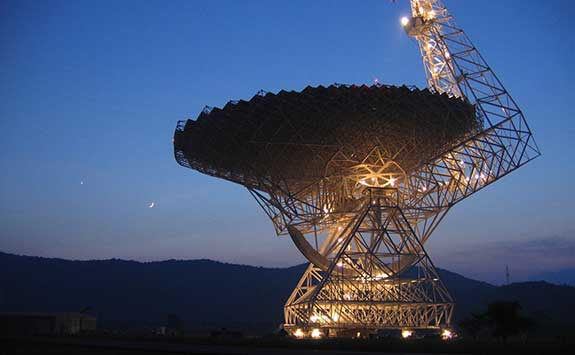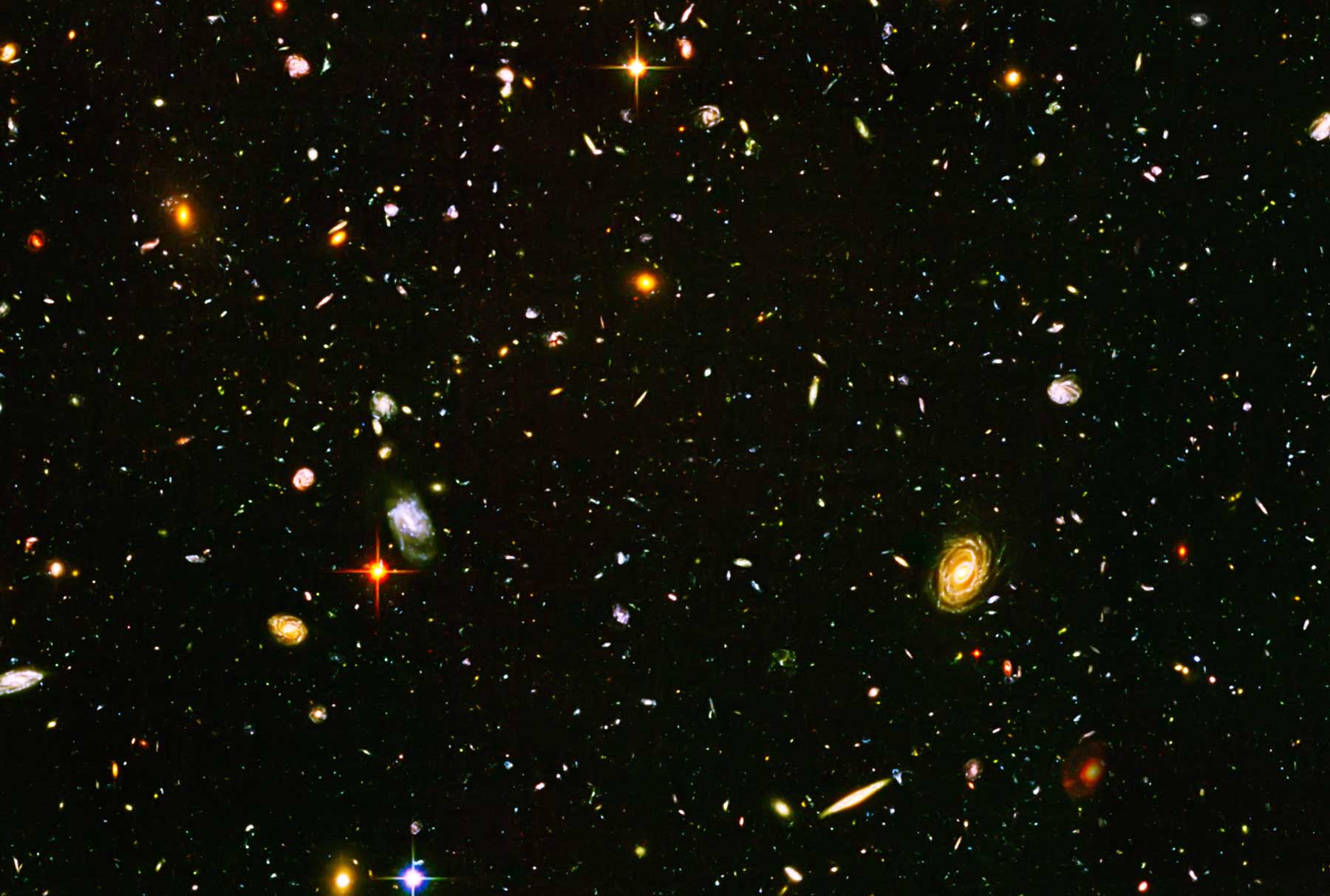Observational Astrophysics
Using a variety of observatories we study the small to the vast - including pulsars, active galactic nuclei, galaxies and cosmology.
Answering fundamental questions about the Universe
Our group uses a wide range of astronomical observatories to answer fundamental questions about the Universe. This includes:
- studying how galaxies form and evolve
- measuring the properties of pulsars
- evaluating parameters of cosmological models
- testing theories of gravity
The world’s biggest telescopes
We use the world’s biggest telescopes such as:
- the European Southern Observatory’s Very Large Telescope (VLT)
- the Atacama Large Millimeter Array (ALMA)
For example, with these telescopes we use spatially-resolved measurements of the gas inside galaxies to study how supermassive black holes alter the evolution of their host galaxies. These telescopes also allow us to measure how distant galaxies rotate. This helps our group assess how the dark matter, star and gas content of galaxies change as they evolve through time.
With these science goals in mind, we're further preparing for observations with the Extremely Large Telescope. It will be the world’s biggest optical/near-infrared telescope for the foreseeable future.

Precision measurement
We use highly precise measurements to study compact objects such as pulsars. By studying individual pulsar systems we learn about accretion physics and can test models of gravity. By studying large samples of pulsars we can search for the background signal of gravitational waves. We're involved in the NANOGrav team’s efforts to do this.
On much larger scales our group uses observations of millions of galaxies to test and refine cosmological models. We do this with precise measurements of large-scale structures and the weak lensing effect. Towards this, our team are involved with:
- the Vera C. Rubin Observatory (LSST)
- the Kilo-Degree Survey (KiDS)
- Euclid
Find out more
Visit our blog for more information about:
- our staff
- our current students
- our research
- our engagement activities
